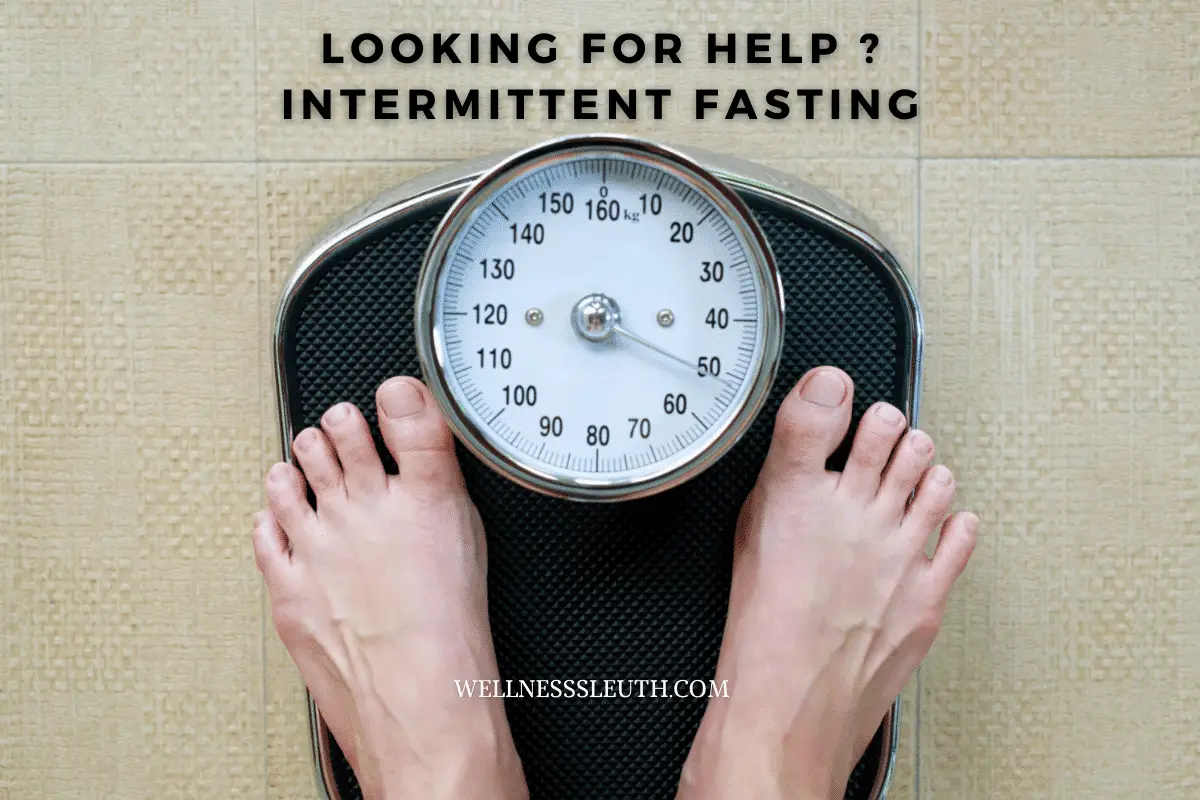There are many reasons people might choose to do intermittent fasting. Some do it for weight loss, while others find that intermittent fasting helps with blood sugar control or chronic health conditions like autoimmune diseases.
What is intermittent fasting?
Intermittent fasting is an eating pattern that cycles between periods of eating and not eating. If you haven't eaten for 16 hours, then you would be considered "not eating" during those 16 hours.

The most common form of intermittent fasting is to eat within a certain window of time each day, such as only during the hours of noon and 7 p.m., allowing 18 to 20-hour fasts each day. There are other variations in when someone would eat, but they all follow the same basic principle: Not eating when you're supposed to be eating. For example, one variation involves starting off with a 20-hour fast each day and a feeding window from 4.
What is a fast?
A fast is the voluntary abstinence from some or all food, drink, and/or other edible substances for a period of time. Fasting can be used as an alternative to medicine in order to promote healing of the body, mind, and/or spirit. It has been around for centuries with many religions practicing it on certain days. You should consult your health care provider before starting any fasting regimen so they can help you determine if this would be safe for you.
The first step in fasting is deciding what type of fast you want to do - there are intermittent, partial, juice-based, and full-fasting options available depending on your personal preferences and goals.
Who should try intermittent fasting?
While there are benefits to intermittent fasting for everyone, it's not a good fit for everyone. "Intermittent fasting is not recommended for pregnant women, breastfeeding women, anyone under 18 years of age, or people with certain health conditions," says Abbey Sharp, RD.
"If you have any concerns about starting an intermittent fasting routine, please consult with your healthcare professional."

That said, if you're generally healthy and want to give intermittent fasting a try, there are a few things you need to know.
"As with any dietary change, it is important that you tune into your body and understand what intermittent fasting does for you," says Sharp. "And if you find that it's not the right fit for your lifestyle, don't be afraid to try something different."
The first thing to remember
The first thing to remember is that fasting isn't eating, it's abstaining from food. It sounds hard but there are many benefits of fasting which will be discussed in the body of this post.
The next step is making sure you're getting enough fluids and electrolytes during your fast. Many people think they can just drink water but coffee, tea, low-sugar sports drinks, or sugar-free energy drinks are also good options for staying hydrated while not breaking your fast. The last important thing to know about fasting is what to do after the fast ends so you don't undo all the work you've done! After a period of time where no solid foods have been eaten (typically 12 hours), liquids may be consumed again
Intermittent fasting results: How can you tell it's working?
The number one thing people using intermittent fasting should check in with. Isthemselves on how their hunger levels are feeling from day today. This may sound counterintuitive because we're often taught that being hungry means our bodies are responding well to a certain eating pattern, but this isn't necessarily the case! When people begin intermittent fasting after a period of overeating or eating a lot of processed foods, they may feel more hungry at first because their bodies are used to getting a lot of energy from food. But as the body adapts to burning fat stores for energy instead of glucose, hunger usually subsides.

"If you're intermittent fasting and find that you're constantly hungry, it might be because you're not eating enough during your feeding window," says Sharp. "Try increasing your caloric intake during that time."
Effects of fasting on exercise?
But what about the effects of fasting on exercise? Can you still reap the rewards if you're someone who likes to hit the gym or go for a run? The answer, it seems, is yes. In fact, fasting may even help improve your performance. So, if you're looking to boost your fitness game, consider giving fasting a try.
Intermittent fasting weight loss: How much can you expect to lose?
When it comes to weight loss, there's no one-size-fits-all answer. How much weight someone loses while intermittent fasting depends on their current diet and lifestyle, as well as how much they're eating during their feeding window.

"In general, people do lose weight when intermittent fasting, but it's important to remember that it's not a magical solution," says Sharp. "Like any diet or weight-loss plan, results will vary from person to person."
That said, if you're looking for a way to jumpstart your weight loss journey, intermittent fasting may be a good option.
"I often suggest intermittent fasting as a way to help break through a weight-loss plateau," says Sharp. "It can help to reset your metabolism and get your body back on track."
Intermittent fasting plan: How do you start?
"If you are looking at starting intermittent fasting, I recommend that people start by reading about general guidelines so they understand some basics," says Sharp. "Then, work with their healthcare professional to determine what might fit into their lifestyle."

Because there are various methods of intermittent fasting and no one-size-fits-all approach, understanding the different approaches helps individuals figure out what might be most effective for them. And because intermittent fasting isn't for everyone, it's important for people interested in trying it to make sure they have support -- either from their doctor or dietitian -- throughout the process.
Get your doctor's approval
"Intermittent fasting can be a great way to lose weight and improve health, but it's important to do your research and talk to a professional before starting," says Sharp. "If you're not sure if intermittent fasting is right for you, or if you have any questions, again, please reach out to your doctor or dietitian. Get your doctor's approval and recommendations.

Intermittent fasting has been gaining popularity in the past few years as a way to lose weight and improve health. But like many things in the world of diet and nutrition, there is a lot of conflicting information about intermittent fasting. Some people swear by it, while others find that it doesn't work for them. So what's the truth? Are there benefits to intermittent fasting? And if so, who should try it?
To answer these questions, we spoke with experts in the field of diet and nutrition about intermittent fasting. Here's what they had to say.
"If you're intermittent fasting and find that you're constantly hungry, it might be because you're not eating enough during your feeding window," says Sharp. "Try increasing your caloric intake during that time."
Intermittent fasting weight loss: How much can you expect to lose?
When it comes to weight loss, there's no one-size-fits-all answer. How much weight someone loses while intermittent fasting depends on their current diet and lifestyle, as well as how much they're eating during their window.
Give your PANCREAS a rest.
Intermittent fasting can give your pancreas a break from all the work it does producing insulin when you eat. Giving your pancreas a rest may help lower blood sugar levels and improve insulin sensitivity in people with type 2 diabetes or metabolic syndrome.

In one study of 17 obese adults with type 2 diabetes who fasted every other day for 22 days, glucose levels decreased and their insulin sensitivity improved. Another study found that intermittent fasting was just as effective as calorie restriction for reducing inflammation markers in overweight individuals.











Leave a Reply
You must be logged in to post a comment.